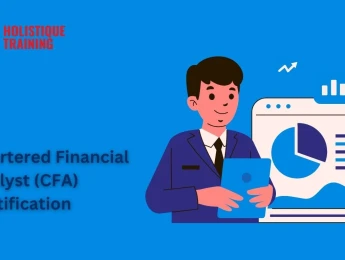Within the hospitality industry, there are a multitude of factors that can influence a business’s success. One of these many factors is effective finance management and intelligent investments.
Establishing investments and gaining investors is vital in ensuring the future of a hospitality business. To invest efficiently, you must be fully competent in several areas of finance, including measuring performance, creating and maintaining budgets, analysing cost principles, and implementing proficient risk management.
Without these necessary skills, the process of investing will be incredibly unreliable. Investments greatly rely on the knowledge and capabilities to assess a business’s financial standing. If a business does not effectively analyse current costs and income, then an incorrect investment can potentially cause great harm to the business in terms of resources and reputation.
Management relating to finance and investment is crucial for a business to maintain its position within the current market, and investing is one of the guaranteed ways to see the business expand and flourish.
Upon completion of this course, participants will be able to:
- Understand the importance of investments within the hospitality industry.
- Appreciate the role of finance management when it comes to investments.
- Assess the value of long and short-term investments.
- Review various methods of measuring investment performances.
- Analyse capital investment and financing decisions using up-to-date techniques.
- Identify opportunities and threats when deciding on an investment.
- Utilise different forecasting techniques to gain a thorough understanding on ideal investments.
- Effectively create action plans detailing investment influences, including key success and risk factors.
- Implement financial risk management.
This course is designed for anyone responsible for managing finance or establishing investments to advance their business. It would be most beneficial for:
- Finance Managers
- Finance Directors
- Operations Managers
- Project Managers
- Financial Advisors
- Planning and Control Personnel
- Sales/Marketing Directors
This course uses a variety of adult learning styles to aid full understanding and comprehension. Participants will review real-world examples of investment portfolios to highlight areas of success and potential risks.
They will be supplied with all the tools necessary to conduct the given learning exercises. They will also participate in presentations, group discussions and practical activities to further develop their understanding of the taught content. In groups, participants will also be able to develop their own investment portfolios about their respective roles to demonstrate that they comprehend the concepts of cost analysis, budgeting, and risk management.
Day 5 of each course is reserved for a Q&A session, which may occur off-site. For 10-day courses, this also applies to day 10
Section 1: Assessing Business Performance
- The vitality of measuring business performance.
- Optimal methods and techniques for measuring performance.
- The purpose of financial statements.
- Assessing the different perspectives and their influence on performance – management, owners, and lenders.
- Calculating ratio analysis and using ratios as a system.
Section 2: Analysing Investment Decisions
- Comprehending key financial principles – net present value (NPV), internal rate of return (IRR) and economic value added (EVA).
- Applying time-adjusted measures.
- Calculating NPV, IRR and EVA to expand the understanding of investment capabilities.
- Conducting sensitivity and scenario analysis.
- Assessing risks associated with changing circumstances and carrying out risk audits.
Section 3: Financing Decision
- Evaluating short and long-term sources of income.
- Understanding equity capital.
- Reviewing the types of debt.
- Explaining the weight cost of capital (WACC) and the capital asset pricing model (CAPM).
- Determine the most appropriate situations where using WACC and CAPM would be beneficial.
- Establishing effective finance management to manage risks and balance finances ahead of investments.
Section 4: Cost Analysis
- Investigating cost behaviour and activities.
- The difference between fixed and variable costs and direct and indirect costs.
- Balancing product costs and period costs.
- The process of cost allocation and cost absorption.
- Effective methods of cost analysis – feasibility, effectiveness, cost-benefit, and cost-utility.
- Conducting a ‘what if’ analysis using various programs.
Section 5: Budget and Investment Management
- The purpose of budgeting and consequences of poor budgeting.
- The stages of establishing an effective budget.
- Influential factors of a budget.
- Analysing the types of investment portfolios and their advantages.
- Methods to effective portfolio management – active, passive, discretionary and non-discretionary.
Upon successful completion of this training course, delegates will be awarded a Holistique Training Certificate of Completion. For those who attend and complete the online training course, a Holistique Training e-Certificate will be provided.
Holistique Training Certificates are accredited by the British Assessment Council (BAC) and The CPD Certification Service (CPD), and are certified under ISO 9001, ISO 21001, and ISO 29993 standards.
CPD credits for this course are granted by our Certificates and will be reflected on the Holistique Training Certificate of Completion. In accordance with the standards of The CPD Certification Service, one CPD credit is awarded per hour of course attendance. A maximum of 50 CPD credits can be claimed for any single course we currently offer.
- Course Code IND15-102
- Course Format Online, Classroom,
- Duration 5 days














